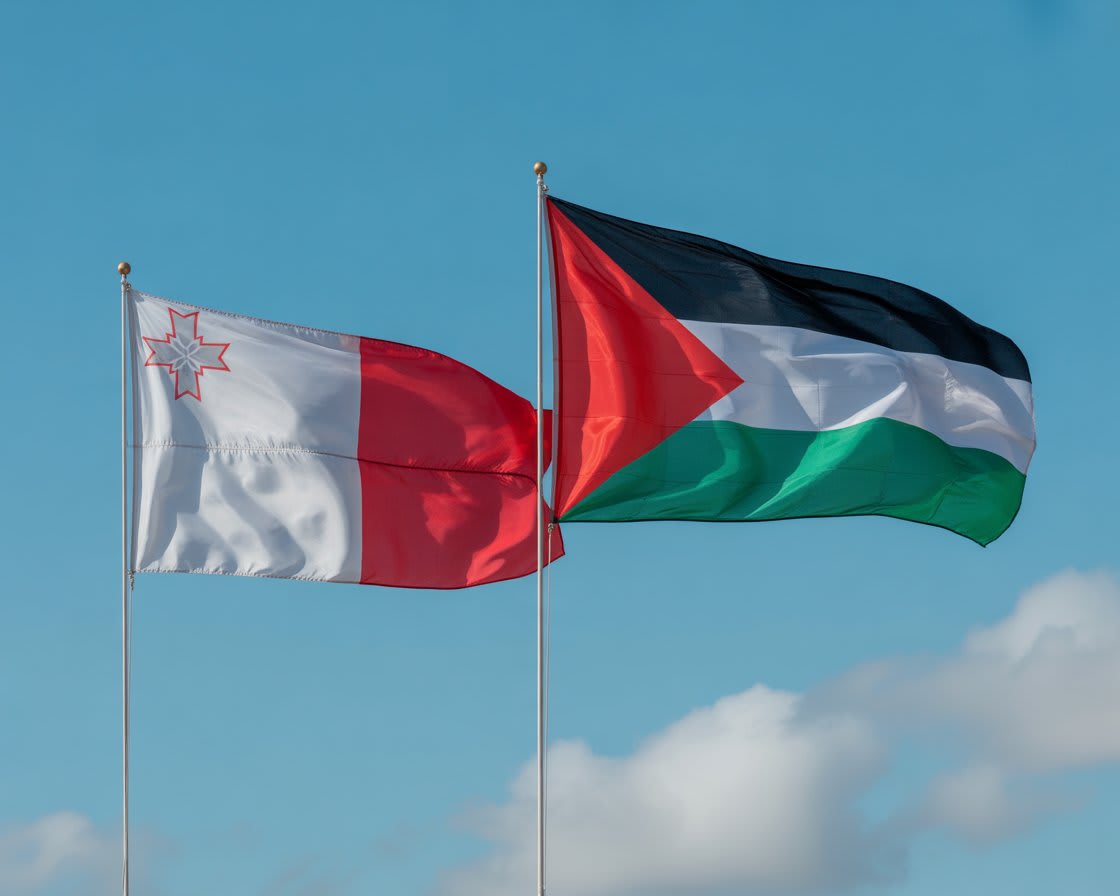In a historic move that adds fresh momentum to a growing diplomatic trend across Europe, Malta has officially recognized the State of Palestine, joining a wave of European countries shifting their stance on the decades-old Israeli-Palestinian conflict.
The Maltese government announced the decision early Monday morning, calling it “a matter of justice, peace, and international responsibility.”
“We believe that the Palestinian people, like all peoples, have the right to self-determination, dignity, and a sovereign homeland,” the government said in a formal statement. “Our recognition is a reflection of Malta’s longstanding commitment to peace in the Middle East.”
A Small Country, A Loud Message
Though Malta is one of Europe’s smallest nations — both in land and population — the political significance of this decision resonates far beyond its shores. It marks a clear pivot away from previous neutrality and aligns Malta with other European nations who have taken a firm position in recognizing Palestine.
Over the past year, Ireland, Spain, and Norway have also formally recognized Palestinian statehood, citing increasing concern over Israel’s military actions in Gaza and the humanitarian crisis in the region.
Now, with Malta’s decision, a clear pattern is emerging: Europe is rapidly becoming more openly pro-Palestinian — a trend that could significantly shift the dynamics of international diplomacy.
Why Now?
According to Maltese officials, the decision wasn’t made lightly or suddenly. The government said it followed months of consultations with European partners, legal experts, and humanitarian groups.
However, the ongoing humanitarian catastrophe in Gaza, the lack of a viable peace process, and the continued expansion of Israeli settlements were cited as critical turning points.
“It is no longer possible to wait for negotiations that never happen,” said one Maltese diplomat, speaking on background. “Recognition is a necessary step toward giving the Palestinian people a voice at the international table.”
A Domino Effect in Europe?
Malta’s move is part of a broader European reckoning. Where once most European governments hesitated to recognize Palestine — arguing that recognition should come only through a final peace deal — a growing number are changing course.
There is a sense now, especially after the events of the past two years in Gaza and the West Bank, that waiting has produced nothing but further violence and despair.
A senior EU official told Le Monde recently, “The two-state solution is dying — or may already be dead. Recognition is perhaps the only tool left to revive it.”
Already, conversations are happening in Belgium, Slovenia, and Portugal about whether to follow suit.
Israel Responds with Anger
Unsurprisingly, Israel reacted strongly to Malta’s decision. The Israeli Foreign Ministry issued a statement condemning the move, saying it “rewards terrorism and undermines the path to peace.”
“Recognition of a Palestinian state outside of direct negotiations sends the wrong message to extremist factions,” said the ministry. “Peace can only be achieved through bilateral talks, not one-sided declarations.”
Israel has recalled its ambassador to Malta for consultations, and political analysts expect further diplomatic pushback in the coming days.
Palestinian Leaders Welcome the Move
In contrast, the Palestinian Authority welcomed Malta’s recognition with gratitude and renewed calls for international solidarity.
“We thank the people and government of Malta for standing on the right side of history,” said Palestinian President Mahmoud Abbas. “This recognition brings us closer to justice, even as we continue to face occupation and suffering.”
The announcement was also met with emotional responses on the ground, with videos emerging from Ramallah and Gaza City showing people waving Maltese and Palestinian flags together in celebration.
The Bigger Picture: A Europe Dividing?
While the shift in sentiment toward Palestine is clear, not all of Europe is on the same page. Countries like Germany, the Netherlands, and France have so far held back from recognition, citing the need for caution and engagement with both sides.
But even within those nations, public opinion is changing fast. Pro-Palestinian demonstrations have surged across European capitals. In polls conducted this summer, majorities in over 10 EU countries now support Palestinian statehood.
What Comes Next?
For Malta, this recognition is symbolic — it doesn’t change the facts on the ground, nor does it alter the power dynamics in the region overnight. But symbolism matters in diplomacy, especially when it becomes part of a collective shift.
The growing list of European countries recognizing Palestine may pressure larger players — including the EU, UK, and even the United States — to reassess their positions.
Final Thought
Malta’s decision may seem small in global terms, but it’s part of something much larger: a world gradually waking up to a conflict that can no longer be ignored, postponed, or talked around.
With every new flag raised in recognition of Palestine, the message grows louder: the status quo is no longer acceptable.
